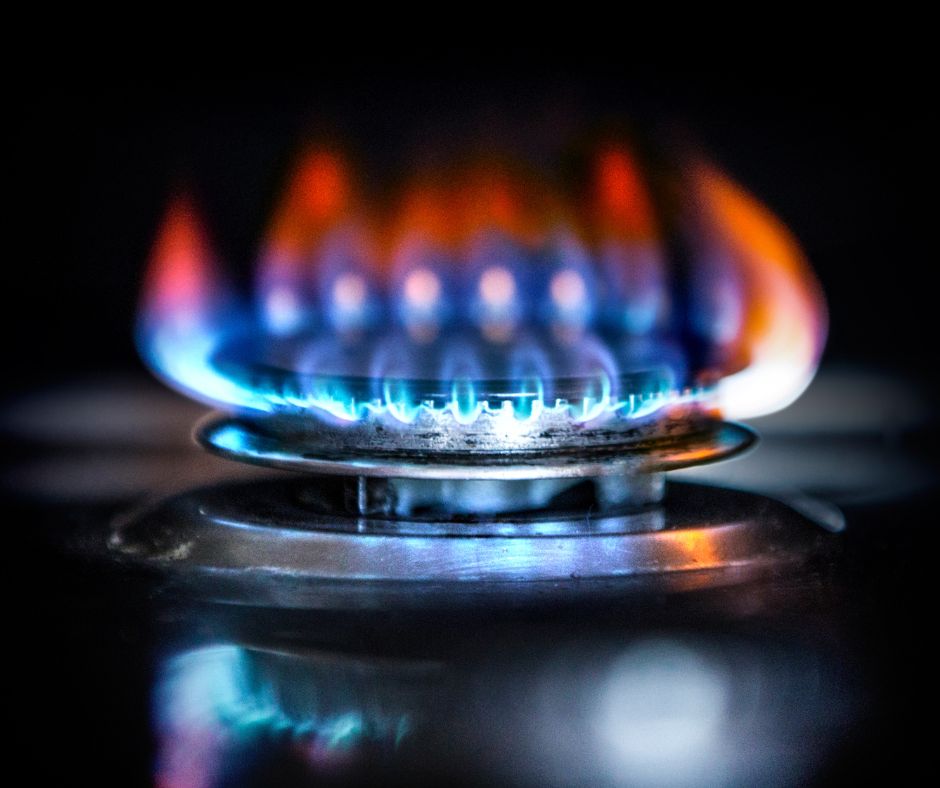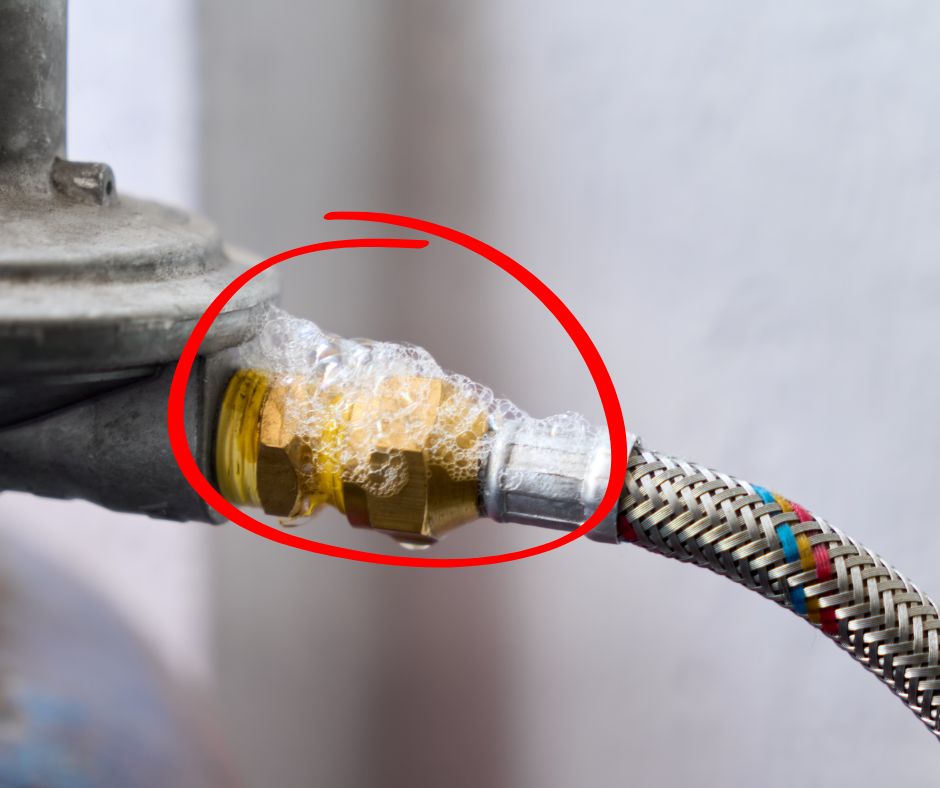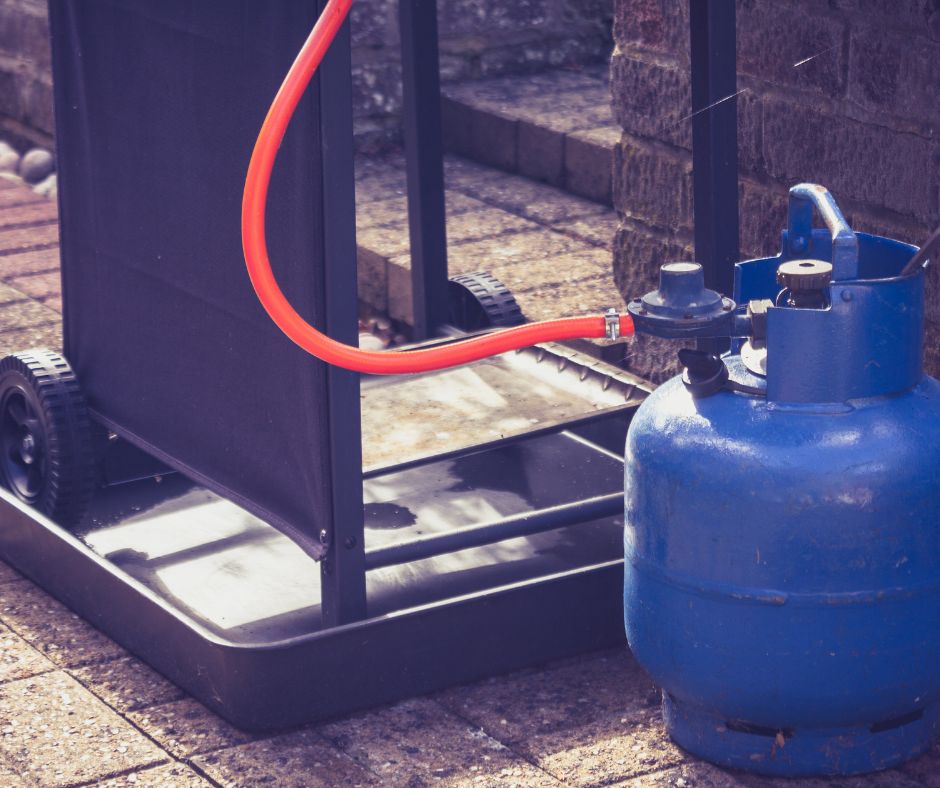Identifying Gas Leak Indicators in Your Home: A Guide to Safety
It is imperative to identify the prevalent signs of a gas leak to safeguard your well-being and that of others nearby. Should you detect a strong odour akin to rotten eggs, hear a hissing or whistling sound close to your gas appliances or piping, observe yellow or orange flames in place of the usual blue, or experience recurrent unexplained headaches or feelings of dizziness, these could all be critical warning signs of a gas leak. Additionally, keep an eye out for any dead vegetation near outdoor gas lines, as this may indicate a significant issue. Upon noticing any of these concerning symptoms in your Wollongong residence, it is essential to immediately turn off your gas supply at the meter, ventilate your home by opening windows, and promptly contact a certified gasfitter for expert help.

When to Seek Immediate Assistance from a Gasfitter in Emergency Situations
Encountering a gas leak is a grave situation that requires prompt action; do not hesitate. A single spark can transform an ordinary household setting into a hazardous environment. Gas leaks can arise from multiple sources, such as faulty connections, ageing appliances, or even corrosion in underground gas lines. Rapid detection and immediate intervention are crucial to preventing injuries, property damage, or even devastating consequences. Homes in Wollongong, particularly those with older gas heaters or inadequately ventilated systems, face heightened risks if their gas systems are not routinely inspected. This comprehensive guide aims to equip you with the knowledge necessary to detect a gas leak, the urgent steps to take, and the appropriate moment to contact a licensed gasfitter for essential repairs.
Key Warning Signs Indicating a Gas Leak in Your Home
1. The Distinctive Smell of Rotten Eggs: A Crucial Alert
While natural gas is odourless in its unadulterated state, suppliers intentionally infuse a compound called mercaptan, which emits a strong, sulphur-like odour, to assist in leak detection. If you suddenly notice a pungent scent reminiscent of rotten eggs, it is vital to heed this warning. This unmistakable odour acts as an immediate alert that gas may be escaping within your home, necessitating swift action to protect everyone's safety without delay.
2. Unusual Hissing or Whistling Sounds Near Gas Appliances: A Cause for Concern
A characteristic sign of a gas leak can be the sound of gas escaping under pressure from a pipe or hose, often creating a soft but discernible hissing noise. If you hear such sounds near your gas appliances or around gas lines, it could indicate a leak. Always remain vigilant and investigate any unusual noises, as they may signify a serious safety issue that requires immediate professional assessment to prevent potential hazards.
3. Uncommon Flame Colours in Your Appliances: A Warning Sign
Gas cooktops and heaters are designed to burn with a clean, bright blue flame. If you notice that the flames appear yellow or orange, or if they flicker erratically, this could indicate incomplete combustion, possibly resulting from gas leaks or blockages within the system. Observing such discoloured flames is a critical warning sign that something is amiss with your gas appliances, warranting immediate investigation to avert further complications and ensure safe operation.
4. Unexplained Physical Symptoms in Household Members: A Serious Concern
If you or your family members frequently experience headaches, dizziness, nausea, or fatigue while indoors, these physical manifestations could suggest gas exposure or a harmful accumulation of carbon monoxide in a confined space. Such symptoms are serious and should not be ignored. It is crucial to recognise these signs and take the necessary precautions, as they may indicate a perilous situation that requires urgent intervention from a qualified gasfitter to ensure safety and well-being.
5. Wilting Houseplants or Dying Outdoor Vegetation: An Indicator of Trouble
Gas leaks occurring near outdoor gas lines or beneath slab connections can lead to the gradual decline of surrounding plants and vegetation. This phenomenon occurs because the escaped gas displaces oxygen in the soil, hindering the plants' ability to thrive. If you observe wilting or dying indoor or outdoor plants in proximity to these areas, it may signal a gas leak that requires immediate assessment by a qualified professional to prevent further environmental damage.

Essential Actions to Take if You Suspect a Gas Leak
1. Swiftly Shut Off the Gas Supply
Locate your gas meter and rotate the valve clockwise to shut off the gas supply to your home. This valve is generally found on an exterior wall, either at the front or side of the property. Acting quickly at this stage is crucial to ensuring safety and preventing potential disasters.
2. Refrain from Using Any Electrical Devices
Do not switch on lights, appliances, or any electrical outlets. Even a tiny spark from an electronic device can ignite leaked gas, leading to potentially catastrophic consequences. Maintain a safe distance from any electrical sources until the situation has been thoroughly assessed by a professional.
3. Open All Windows and Doors for Proper Ventilation
Ensuring adequate airflow is vital for mitigating the dangers associated with gas accumulation within the home. Open all windows and doors to promote fresh air circulation; cross-breezes are particularly effective in dispersing trapped gas. This step is essential for reducing the concentration of gas in the air and enhancing overall safety.
4. Avoid Attempting Repairs on Your Own
Only licensed gasfitters are legally permitted to repair or reconnect gas systems in NSW. Any attempt to tamper with the system can introduce additional risks and may potentially void your insurance policies. It is imperative to entrust repairs to qualified professionals who possess the necessary expertise and training to handle such critical tasks safely.
5. Contact a Licensed Gasfitter Without Delay
If you suspect a gas leak, reach out to a licensed gasfitter for emergency response services in Wollongong and surrounding suburbs. Connect with CS Plumbing’s licensed gas services or our 24/7 emergency plumbing team for prompt and professional assistance to ensure your safety and peace of mind.
Comprehending Compliance with NSW Gas Safety Regulations for Your Home
In New South Wales, all gasfitting work must adhere to the Gas and Electricity (Consumer Safety) Act 2017, which guarantees that the highest safety standards are maintained. All gas-related work must be carried out by a licensed gasfitter to comply with these essential regulations and protect public safety.
Following any regulated work, it is advisable to request a Certificate of Compliance to verify that all safety standards have been upheld. As a homeowner in Wollongong, you bear the legal responsibility for ensuring that your gas appliances and installations are exclusively maintained and repaired by licensed professionals to guarantee safety and functionality.
Proactive Measures to Prevent Future Gas Leaks in Your Home
- Arrange for annual gas safety inspections, particularly before the winter heating season, to ensure system integrity.
- Replace aged flexible gas hoses and bayonet fittings that appear cracked or brittle to prevent leaks from developing.
- Keep vents and exhausts clear of obstructions to ensure proper airflow and efficient operation of gas appliances.
- Regularly check for corrosion on outdoor connections, especially following heavy rainfall or prolonged exposure to coastal conditions.
- Utilise only reputable, certified gas appliances to guarantee optimal safety and energy efficiency in your home.

The Article: Detect and Respond to a Gas Leak in Your Wollongong Home first appeared on https://writebuff.com
The Article Gas Leak Detection and Response for Your Wollongong Home Was Found On https://limitsofstrategy.com

